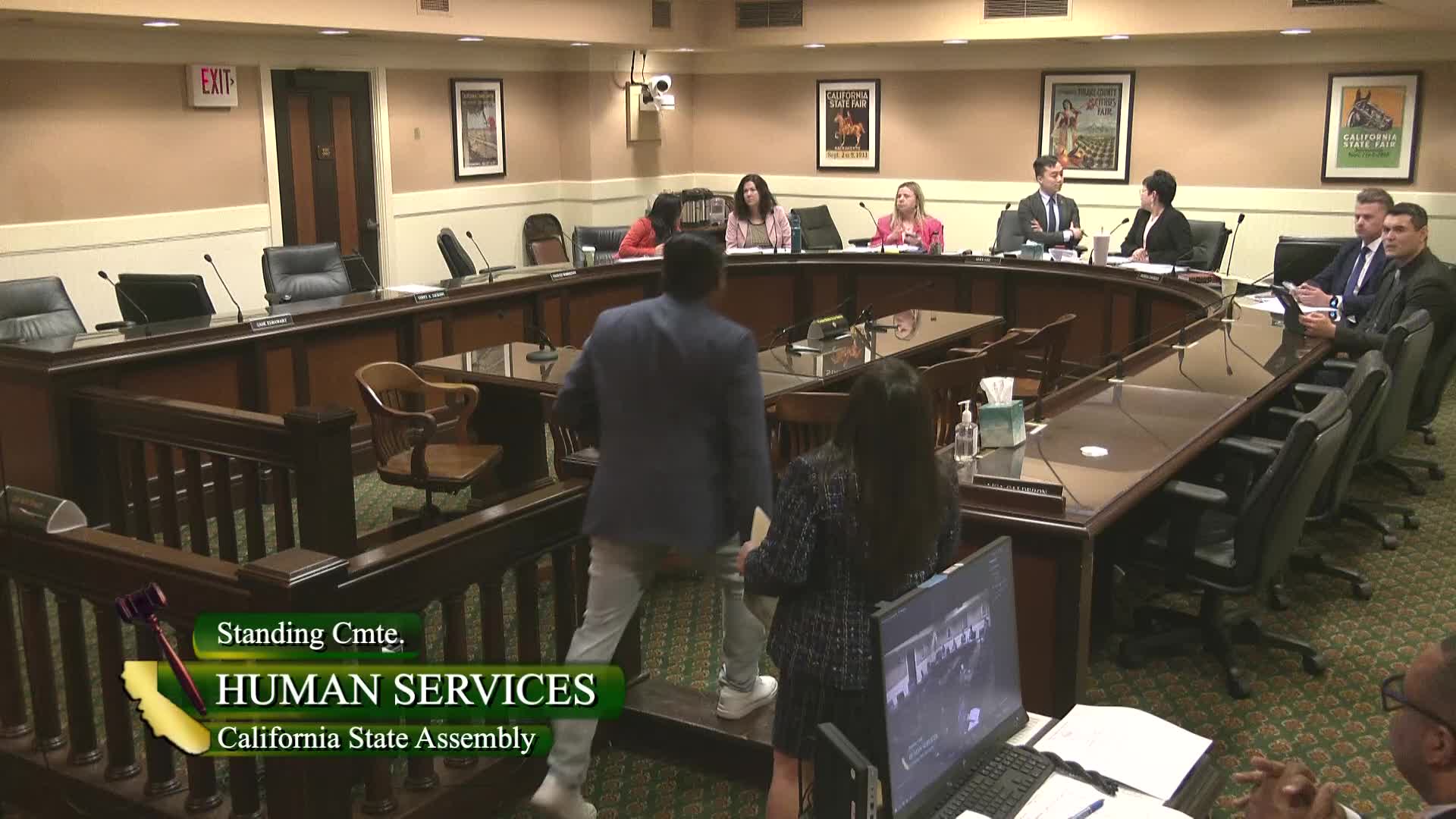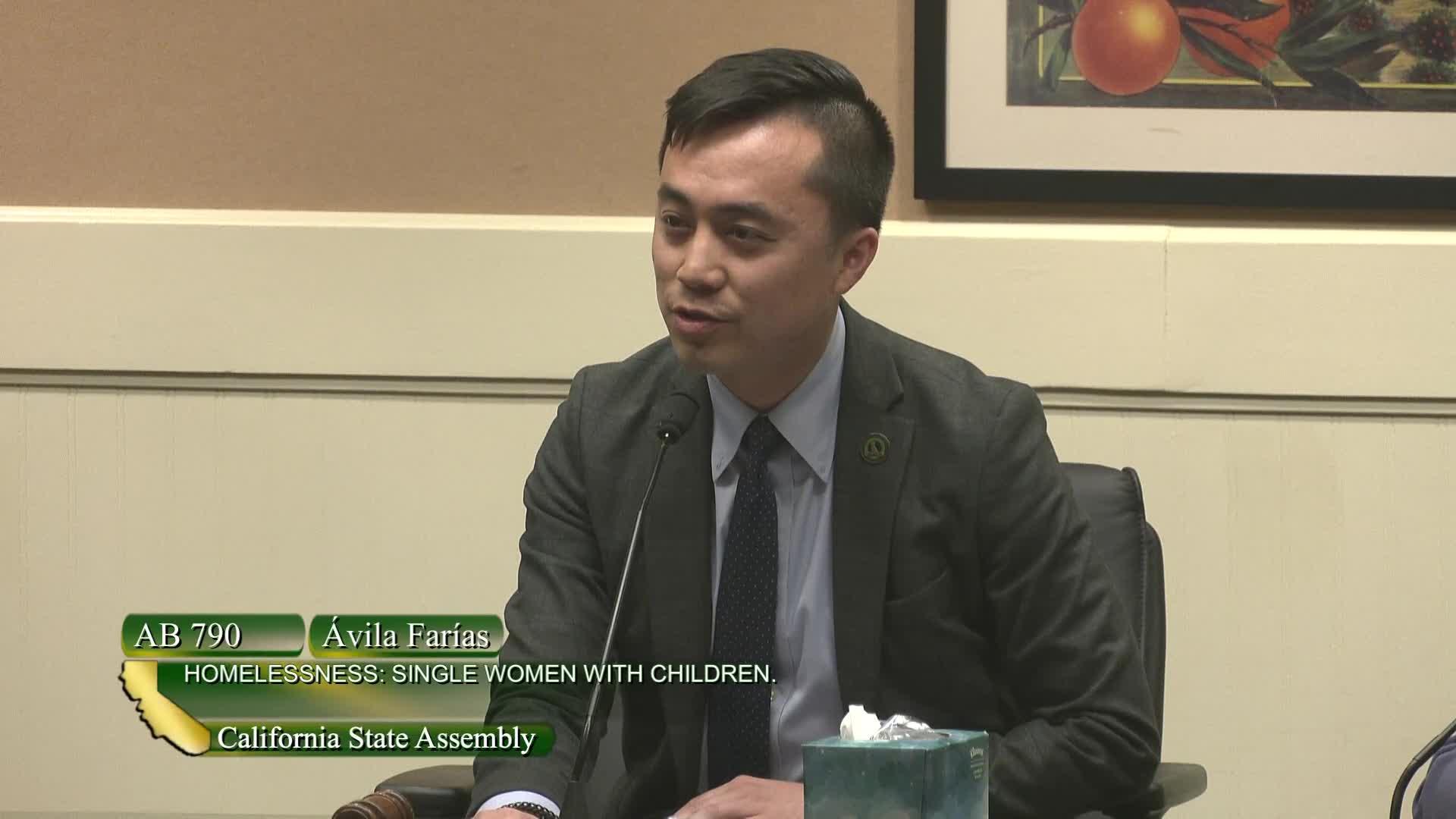Article not found
This article is no longer available. But don't worry—we've gathered other articles that discuss the same topic.

Committee rejects proposal to bar state-funded legal services for certain immigrants with listed felony convictions (AB 1066)

Committee splits on bill to remove outside accreditation requirement for regional center employment providers; motion fails

Committee approves bill to place domestic violence consultants in child welfare offices (AB 779)

Committee advances bill to index infant supplement for parenting foster youth to inflation

Committee advances constitutional amendment to dedicate stable funding for affordable housing (ACA 4)

